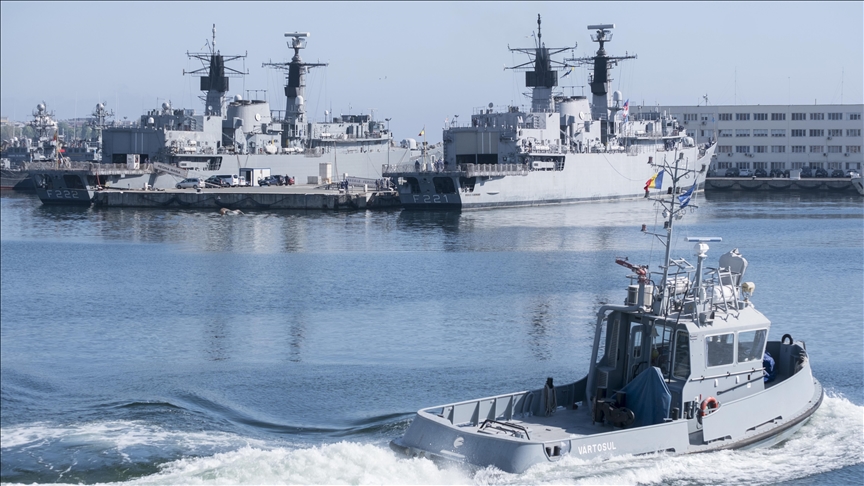EU introduces new strategy for Black Sea region security
EU foreign policy chief highlights region's 'great strategic importance'

ISTANBUL
The European Union on Wednesday unveiled a new strategy to strengthen security and stability in the Black Sea region.
"This strategy aims to boost connections and growth by linking Europe with the South Caucasus, Central Asia and beyond," according to an official statement.
The bloc plans to deepen cooperation with Ukraine, Moldova, Georgia, Türkiye, Armenia and Azerbaijan, while advancing regional projects focused on connectivity.
Speaking at a weekly news briefing, EU Foreign Policy chief Kaja Kallas also commented on a “Black Sea maritime security hub.”
"This hub will be Europe's early warning system in the Black Sea. It will enhance situational awareness and help protect critical infrastructure, like offshore installations and subsea cables," Kallas said.
She noted the hub’s potential to assist in monitoring peace efforts between Russia and Ukraine and emphasized that the EU would step up demining operations in the area.
Kallas also underscored the importance of improving “military mobility” by upgrading regional ports, railways, and roads for transporting heavy military equipment.
"Getting equipment to the region faster strengthens deterrence and also supports NATO. Alongside upgrades, we want better screening of foreign owners in ports and key facilities," Kallas said.
Reiterating the Black Sea’s “great strategic importance,” Kallas pointed to the region’s critical role in connecting Central Asia and Europe, as well as its importance for security, trade, and energy.
"The feel of geopolitical shift is there. Ukraine and Moldova are moving toward membership of the EU, Georgia too, if it returns to the EU path. Türkiye is a vital partner and a candidate country. But the region's potential is marred by Russia's war. Recurring airspace violations and attacks on ports and shipping lanes highlight this reality," she added.
She added that the EU aims to increase cooperation to combat cyberattacks, disinformation, and other hostile actions, calling the Black Sea region a “prime target” for hybrid threats.








